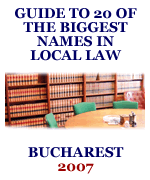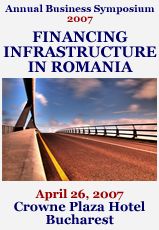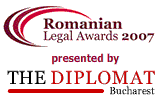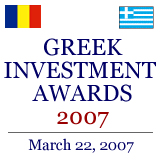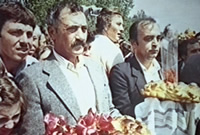 Restrictions on freedom of movement and the right to one’s nationality between the Republic of Moldova and Romania risk forcing an unnecessary political crisis in a region with a surfeit of territorial problems.
Restrictions on freedom of movement and the right to one’s nationality between the Republic of Moldova and Romania risk forcing an unnecessary political crisis in a region with a surfeit of territorial problems.
Due to European Union rules, since January 2007, Moldovans need a visa to enter Romania.
This ruling has imposed a curb on thousands of work migrants to western Europe. It has also brought the issue of countless unresolved Moldovan claims for Romanian citizenship into the light.
There needs to be a bureaucratic overhaul of the visa and citizenship systems between the two countries that has the support of both Governments – and it needs to happen fast.
President Basescu stated that 40 per cent of Moldovans of Romanian descent, 1.5 million people, could apply for Romanian citizenship this year.
Why this sudden surge?
Last year only 3,128 Moldovans reached the application stage in Bucharest, from which only 488 citizenships were granted. There has been no change in the law. The new incentive for Moldovans is the chance to have an EU passport – a magic document for many. However, such a 480 per cent rise in applications seems too massive.
Moldovans we spoke to [see report] claim that since 2000 it has been impossible to win Romanian citizenship. Some have not heard back from applications filed six years ago. There may be a large scandal in the citizenship requests between Chisinau and Bucharest that seem to drown in a bureaucratic River Prut.
Moldovans must also wait a long time to gain a visa to Romania. President Basescu said he will step up efforts to process visa applications. But his first efforts, the proposed opening of two new consulates in Moldova to speed up the process, have been stopped by Moldovan President Voronin’s regime.
Now it is very hard to gain a visa to Romania and near-impossible to gain citizenship. Moldovans feel trapped. One has described how a “new iron curtain has fallen” across the border.
The Moldovan Government’s decision to prevent the opening of the consulates seems to use the new visa regime between Romania as an opportunity to discourage its people to go west.
But Voronin’s Government should facilitate opening borders for its citizens to move between Russia, Ukraine and the EU. This is a nation of migrants. The country’s exiles, of which there are up to one million, send cash home, propping up the fragile economy. The Government needs to embrace this fact and encourage the cash to be invested locally. But if it indirectly impedes efforts by its own citizens to leave of their own free will, this could make Moldovans more conscious of their own entrapment.
This is likely to have the reverse effect to that desired by Chisinau.
It will not encourage people to migrate freely, but to escape and stay away. The worst-case scenario, a ‘Fortress Moldova’ approach, will probably exacerbate support for a ‘reunified’ Greater Romania among large portions of the country. This is something the Moldovan Government does not want.
A potential haemorrhaging of its citizens to the EU and the former USSR states is only a further headache for Moldova. The country faces a growing crisis in the frozen conflict of Transnistria. This self-proclaimed nation state has been emboldened by its recent re-election of President Igor Smirnov until 2011 and doesn’t look like turning west anytime soon.
Patriotism is second to economic gain in the reasons why most people choose to apply for a new citizenship. While Romania’s solid growth rate means the country becomes a magnet for Moldovans, Moldova’s economic malaise makes it less attractive for Transnistrians to unify towards.
It is hard to see what options are left for Moldova.
Michael Bird




